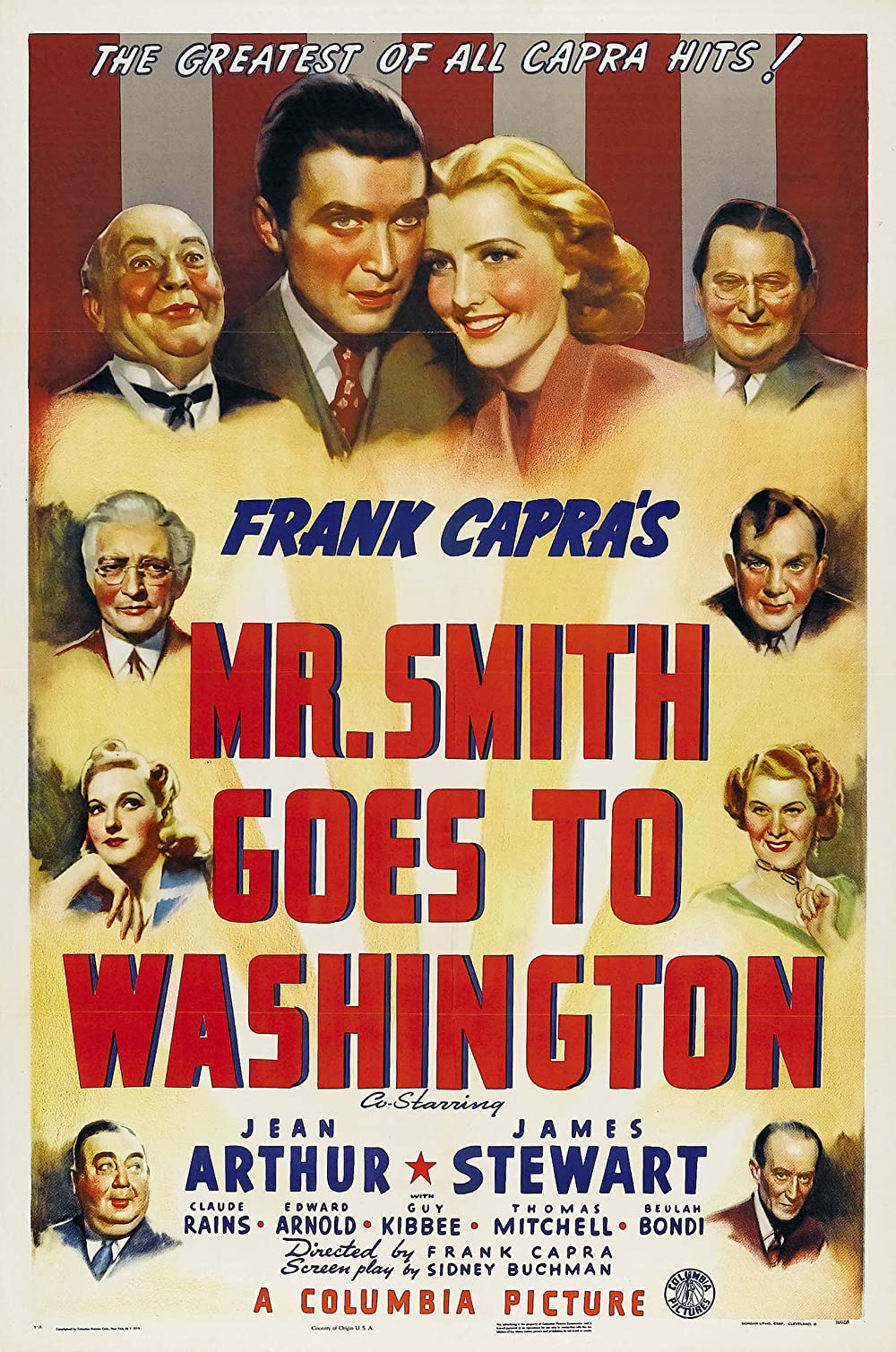Rating of
4/4
Mr. Smith Goes to Washington
SteelCity99 - wrote on 04/21/18
Ladies and gentlemen: THIS is the definition of cinema. The fact that it was made 70 years ago is totally unbelievable. Every single aspect, from cinematographical to technical, is wholeheartedly assembled into one single piece of cinema masterpiece. Italian director Frank Capra directs his most complex, fast-paced and utterly fantastic superlative cinematic project that almost no director by that time could ever dream of. This is not only his best masterwork, but it is, arguably, the best political drama ever brought to amazed worldwide audiences.
When a member of the US Senate passes away, an inexperienced and unsophisticated man, Jefferson Smith, is appointed to fill the vacancy, causing controversy among the process. After his idealistic ideas lead him to Washington and starts a project consisting in organizing a national boys' camp, the state political boss tries to submerge him in the deep world of political corruption and, after complaining and disagreeing with the intentional and malicious flaws of the political process, he tries to overthrow the system while trying to overcome a massive and catastrophic scandal organized against him. The film received 11 Academy Award nominations for Best Writing, Original Story, Best Actor in a Leading Role, two nominations for Best Actor in a Supporting Role, Best Art Direction, Best Film Editing, Best Music, Scoring, Best Sound, Recording, Best Writing, Screenplay, Best Director and Best Picture, winning only the first one. It had the misfortune of competing against the best (Hollywood) classic film ever made, Gone with the Wind (1939), which deservedly took away 5 Academy Awards from Mr. Smith Goes to Washington. Even so, this film is least likely to ever be surpassed within its genre.
Whereas people may prefer It's a Wonderful Life (1946) or even It Happened One Night (1934) because of their charming simplicity and undeniable cinematically romantic magic, those films lacked an important element that made this film into a memorable social commentary: courage. Considering that the world was starting to participate in one of the most destructive and tragic wars of mankind history, the global situation was in a great turmoil. A great amount of guts is needed to explicitly speak out loud and share personal perspectives about topics that considerably started to rule the lives of the ones who belonged to the way of life of citizenship, and that was exactly what Capra attempted and successfully ended up doing.
James Stewart's brilliant performance is, perhaps, the best one he has ever done. Although this was his first nomination for best actor, he should have won it, since it is the best acting he ever did, in my opinion. He portrays the typical idealistic and patriotic American citizen whose childishly brilliant ideas push him to new levels of epiphanic maturity and social bravery. The power of his performance against to those who represent the political corruption found in the governmental system and authoritative figures, who would be Claude Rains as the Senator Joseph Paine and Edward Arnold as Jim Taylor, is a clear and controversially direct portrayal of how reason can prevail over judgment, justice can prevail over corruption and the ignorance of the law can prevail over the law itself. Jean Arthur plays the educated and cultured female figure of the nation, and her performance is extraordinary, among the most complete female performances of cinema. The supporting cast did an excellent job as well, each embodying the villains of the America that citizens dream of even nowadays.
The direction is marvelous, making Mr. Smith Goes to Washington the most masterful cinematic project by Capra (no arguments allowed). The film editing is extremely fast-paced and energetic, adding a lot of intense and emotional moments and vigor throughout. Sound is used in a fantastic way, and it is edited in the most astonishing form, not only considering the sounds themselves within a particular sequence, but also the constant changing of scenes. The screenplay is considerably long, and yet the running time of the movie is totally appropriate and endurable, despite its quick, but understandable rhythm. Both Lewis R. Foster and (specially) Sidney Buchman did an admirable work.
Despite the highly patriotic unrealism that is portrayed at the end, the film gives a dreamed image of the America that hasn't existed yet. Its treating of unique (and nowadays common) topics such as the notorious influence of mass media, the power of the authoritative governors over its people and the American Constitution lead to one single conclusion: Freedom of speech, democracy and idealism can surpass the relative power of the government, and law triumphs once again. Audacious essay about politics that actually DOES NOT need any knowledge about the topic because of the way the plot is handled. The message and personal viewpoints of the director are clearly stated.
99/100




